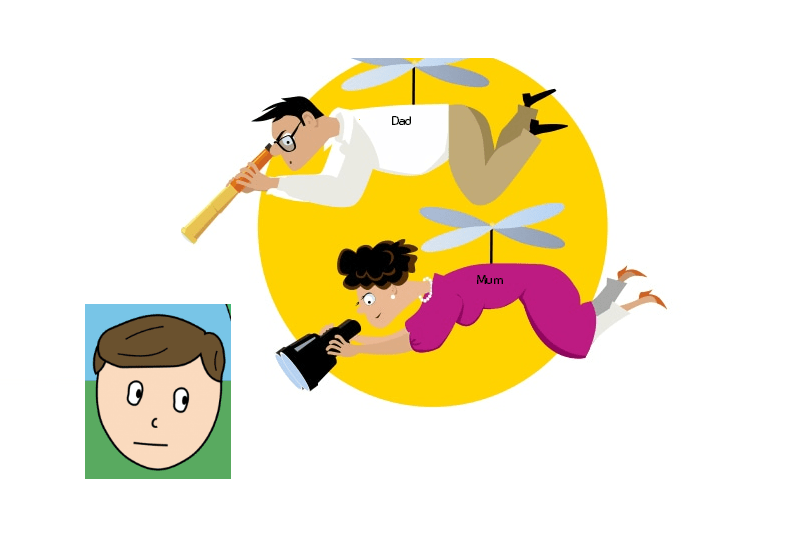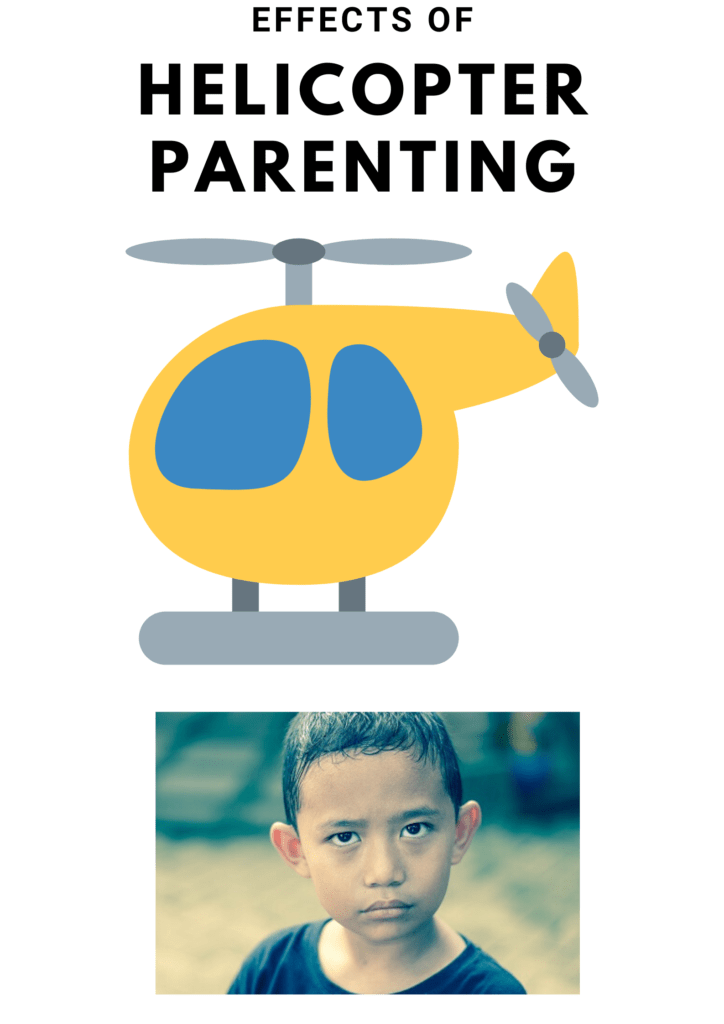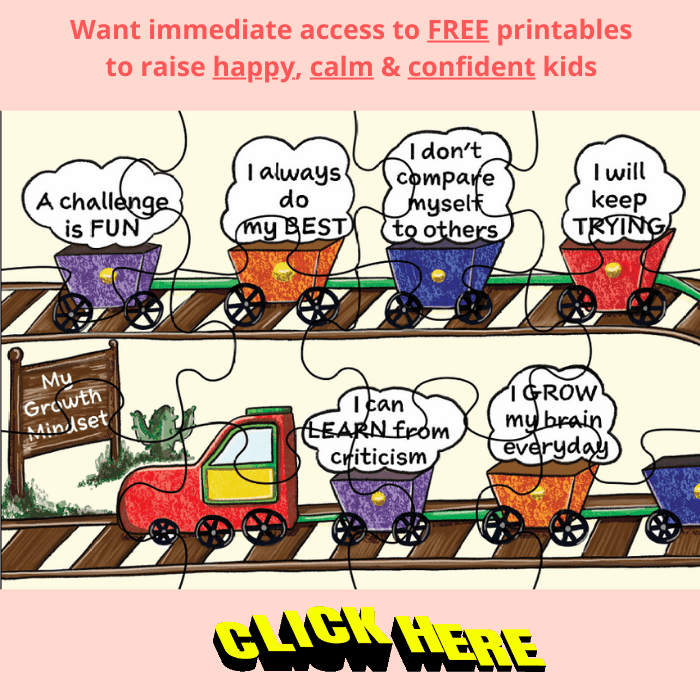“How to begin to educate a child. First rule: leave him alone. Second rule: leave him alone. Third rule: leave him alone. That is the whole beginning.”
– D.H. Lawrence
Parenting can be difficult at times but it’s an undeniable fact that we only want what’s best for our kids. As such, we try to be as involved in their lives as we possibly can but how much is too much? When can we say that we’re going into helicopter parenting territory? In the first place, what is helicopter parenting?
Helicopter Parents Definition: What Is It
As mentioned, we only want what’s best for our children and this is instinct but some parents take parental involvement to a whole new level – a more extreme one at that.
So what is the definition of a helicopter parent – Helicopter parenting or cosseting, is the act of being extremely involved in your child’s life that it’s akin to a hovering helicopter, hence the term.

Instead of encouraging them to become more independent, responsible, resilient and establish their own identities, helicopter parents handle and sometimes downright tackling any obstacles their children may face so they don’t have to experience the negative side of life.
Examples of classic helicopter parenting would be organising every single moment of their lives, enrolling them in classes they didn’t ask for, resolving their problems for them, among others.
The term was first used in the 1969 book entitled “Between Parent and Teenager” authored by Dr Haim Ginott.
Effects of Helicopter Parenting on Your Child
Although this type of parenting is primarily done with good intentions, research has shown that it’s not exactly doing the children any favours, especially when they reach adulthood.

Aside from them not developing the skills needed to cope with the challenges of life, helicopter parenting can also contribute to the development of certain issues in your child such as the development of anxiety, increased tendency towards burnouts, and difficulties adapting to real-life situations on their own.
Excessive control over children’s lives has also been linked to poorer behavioural and emotional self-regulation, stunting their development in terms of social skills and even productivity. Some of these are long term consequences that have a serious impact on the child.
Examples of Helicopter Parenting
Here are some examples of being a helicopter parent. See if you are one of them?
- Feeding your 7-year-old because she doesn’t finish all her food on the plate
- Your 8-year-old son still uses training wheels as you feel worried he may fall and get hurt
- Staying up late to do your child’s homework as its too “hard” for him or because he has “too much” homework
- A school mate called him a name, so you decided to ring his mum to ask about the incident
- The class teacher gave a warning to not do something, so you decided to confront her the next day morning
- The class teacher awarded a prize to Jake for mathematics but you thought that was wrong because your son was better than Jake in mathematics
You can also grab our very own Self-Esteem and Confidence Journal for kids and complete a few pages each day.

7 Tips on Avoiding Becoming a Helicopter Parent
So, if being overprotective and controlling aren’t doing them any good, how can you avoid or stop being a helicopter mom or dad to your child?
Well, here are 7 tips you can follow to allow your child to grow and develop as they should and become amazing adults you can be proud of.
Think of the future.
When they’re small, it’s tempting to hover over them and do everything for them, just so life is easier for their child. This is often the case for parents who didn’t feel as loved or protected when they were younger.
However, rather than focusing on the now, think about the future of your child. Would you want them to be eternally dependent on you, even for the most basic tasks? Or do you want them to develop the skills necessary to survive on their own, especially when you’re no longer with them.
Observe and learn what they can and can’t do for themselves
According to the ideas outlined in developmental psychology, each stage of a person’s life entails specific skills and abilities they are capable of doing. This is also true for your child. At different stages of their life, there are certain things they can and cannot do at the time.
By observing and taking note of your child’s capacities, you’ll be able to better understand where and when you need to step in and take control and when you need to stop. Balance is key when it comes to this so you must be aware of not just what they’re capable of but of your actions and behaviour as well.
Be realistic
Just like with any habit, stopping yourself from being a helicopter parent requires a slow and realistic approach. This is where your list comes in. Use it as a reference of not only what to stop doing for them, but also when you need to stop.
Just like how they won’t immediately learn everything they need to, breaking a bad habit takes time and effort so you also need to accept this to effectively stop your helicopter parenting.
Accept and embrace their imperfection
As mentioned, they won’t immediately learn everything they need to, especially if you’ve been doing everything for them up to this point. With that said, you need to accept and embrace the fact that their work won’t always be perfect or even up to your standards.
Just like how you’re learning not to hover, they’re also learning not to rely on you for everything and become more independent.
Give them room and space to grow
Stopping your helicopter parenting doesn’t mean you’re going to give them absolute freedom to do what they want but just enough space for them to fight their own battles and develop their skills and identity.
While this may be difficult for you as a parent, this may involve allowing them to take risks and decide for themselves on certain things. The key to this is having a balance between being permissive and authoritarian. In Psychology, this is termed as authoritative parenting or sometimes democratic parenting. Check out my article on how you can teach your child to develop confidence and a growth mindset
Let them deal with the consequences
Part of becoming independent is learning to accept and deal with the consequences of our actions. In other terms, we need to be held accountable for any decision we make, especially when done with full knowledge and intention.
Seeing your child in a difficult position may be excruciating for you but it’s a hard lesson everyone, including your child, needs to learn. If they got a disappointing grade on an exam because they didn’t study, then they need to learn – and accept – the result of their actions.
Guide them but don’t coddle them
When you’re a helicopter parent, the boundaries between being involved and downright meddlesome can be blurry. Being involved entails teaching them with the skills and lessons they need to learn to succeed in life but giving them enough room to make their own mistakes and learn their lessons.
While guidance is necessary, being overprotective and meddling in their affairs can only do more harm than good, especially in the long-run. Give advice and step in when necessary but don’t immediately offer to rectify the situation, especially if they can do so themselves.
Final Thoughts
Our children won’t and shouldn’t be dependent on us forever which is why we must guide them appropriately so they know what to do when we inevitably disappear to make way for their generation. While it can be difficult to stop, you’re taking a step towards the right direction by asking what is helicopter parenting and seeking ways to avoid being one.
Have you checked out some of my recent articles related to children?
Here are some excellent growth mindset quotes for kids
Excellent tips for raising grateful kids
7 Great Tips for raising strong and resilient kids
References
- Malinda Carlson, 10 Warning Signs That You Might Be a Helicopter Parent (and How to Stop), 2015. Link here.
- Valencia Higuera, Karen Richardson Gill, What Is Helicopter Parenting, 2019 September. Link here.
- Cory Stieg, Kids with ‘helicopter parents’ more likely to burn out, have a harder time transitioning to ‘real world’, 2019 November. Link here.
- Kaitlin Luna, Helicopter Parenting May Negatively Affect Children’s Emotional Well-Being, Behavior, 2018 June. Link here.
- Joel L. Young M.D., The Effects of “Helicopter Parenting”, 2017 January. Link here.
- Mike Brooks Ph.D., No, Don’t Be a Helicopter Parent. But Be Involved., 2019 February. Link here.
- American Psychological Association, Cognitive and Social Skills to Expect From 6 to 10 Years. Link here.
- Helicopter parenting: the consequences. Link here




1 Comment
Pingback: How to Raise a Responsible Child: An Effective Approach - Mummy and Child